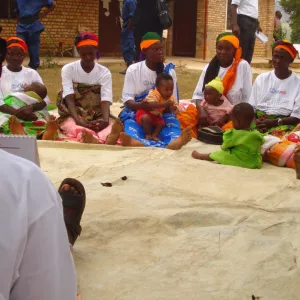Can child wasting be prevented in times of crisis? Evidence from Burundi
This post is the sixth in a series on a research project in Guatemala and Burundi that evaluated how to optimize food assistance programs for maximum impact. Read the first piece here, second here, third here, fourth here, and fifth here. The global health and economic crises caused by the COVID-19 pandemic are decimating livelihoods, threatening food security, and increasing mortality rates. One of the gravest consequences is

Can child wasting be prevented in times of crisis? Evidence from Burundi
This post is the sixth in a series on a research project in Guatemala and Burundi that evaluated how to optimize food assistance programs for maximum impact. Read the first piece here, second here, third here, fourth here, and fifth here.
The global health and economic crises caused by the COVID-19 pandemic are decimating livelihoods, threatening food security, and increasing mortality rates. One of the gravest consequences is that by the end of 2022, 9.3 million more children may have suffered from wasting (low weight-for-height) than otherwise would have, and the effects could follow them for the rest of their lives.
The pandemic is only the most recent reminder of the troubling lack of evidence on how to prevent wasting, as research has tended to focus more on the development of treatment strategies to save lives than on identifying interventions to keep children from becoming acutely malnourished in the first place.
Photo credit: Jef Leroy/IFPRI

